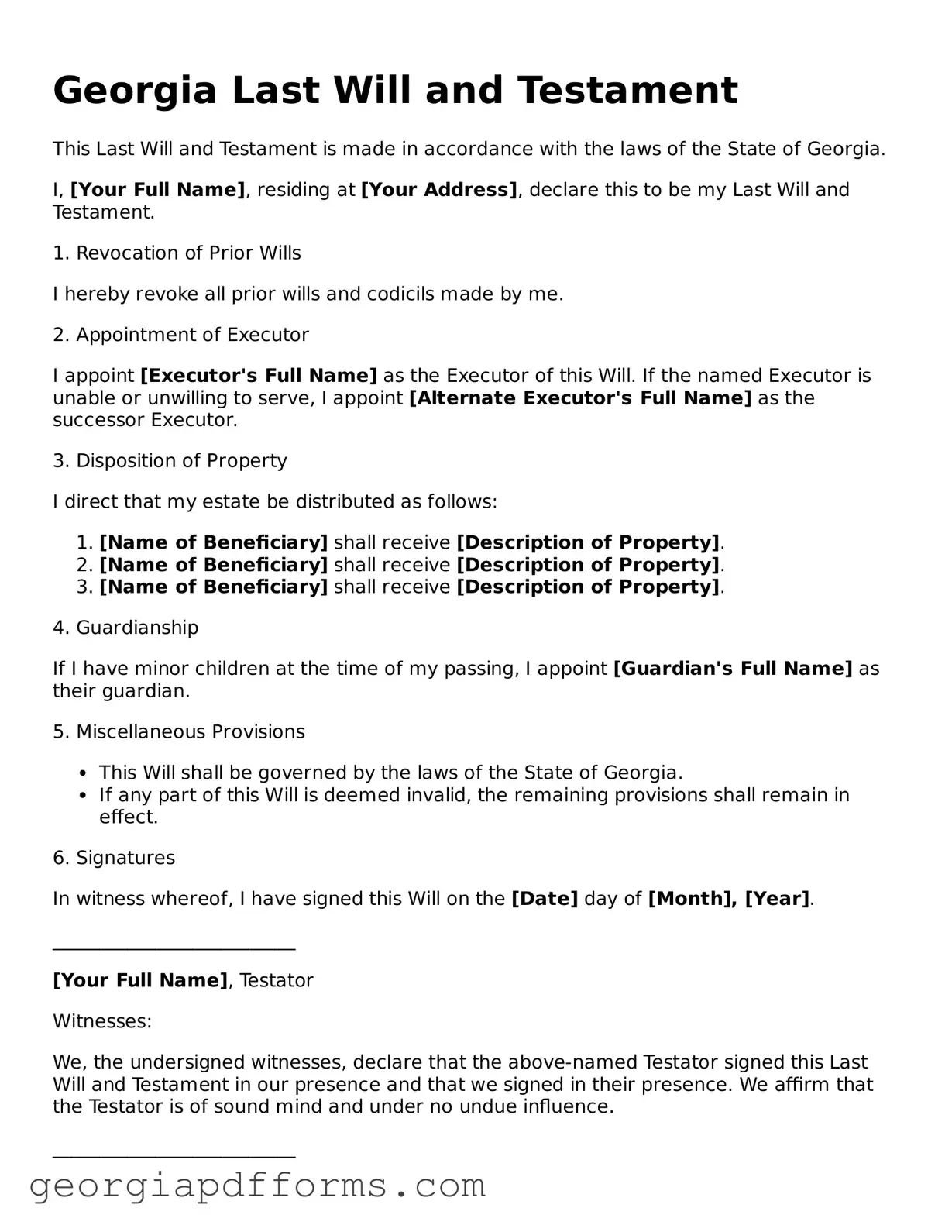Official Last Will and Testament Document for Georgia State
A Georgia Last Will and Testament form is a legal document that outlines how an individual's assets and affairs should be managed after their passing. This form ensures that your wishes are clearly stated and legally binding. Understanding its components and requirements can help you make informed decisions about your estate planning.
Access Editor Now

Official Last Will and Testament Document for Georgia State
Access Editor Now
Almost there — finish the form
Fill and complete Last Will and Testament online fast.
Access Editor Now
or
Free PDF File
